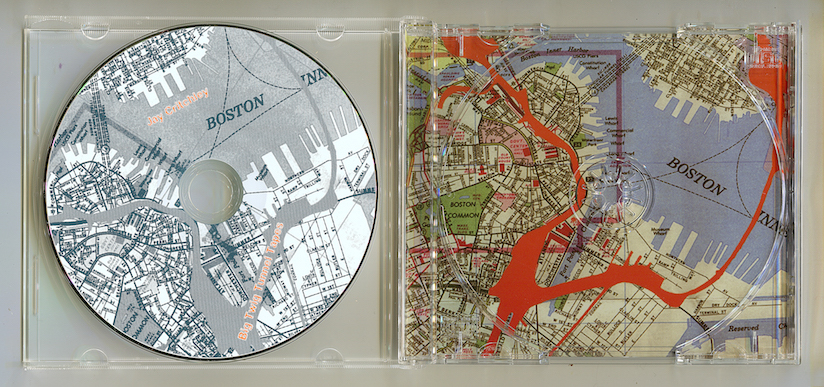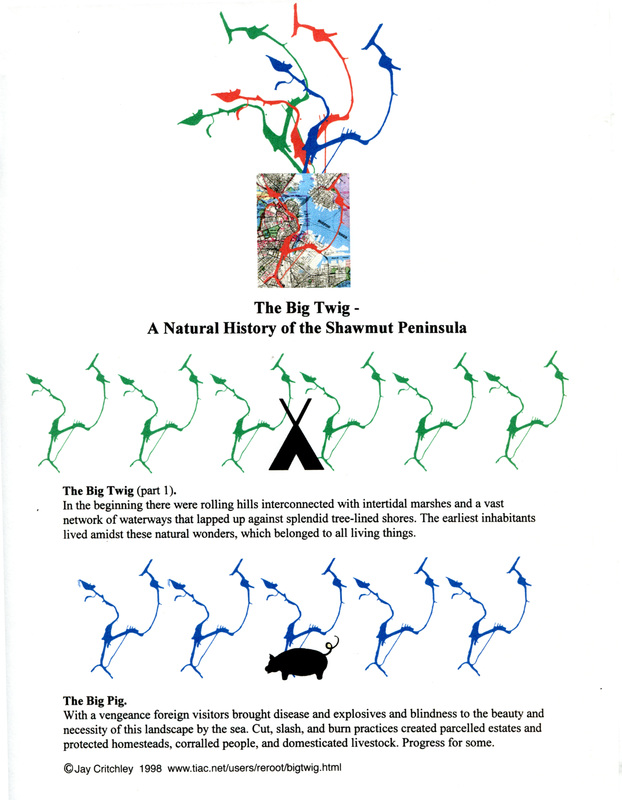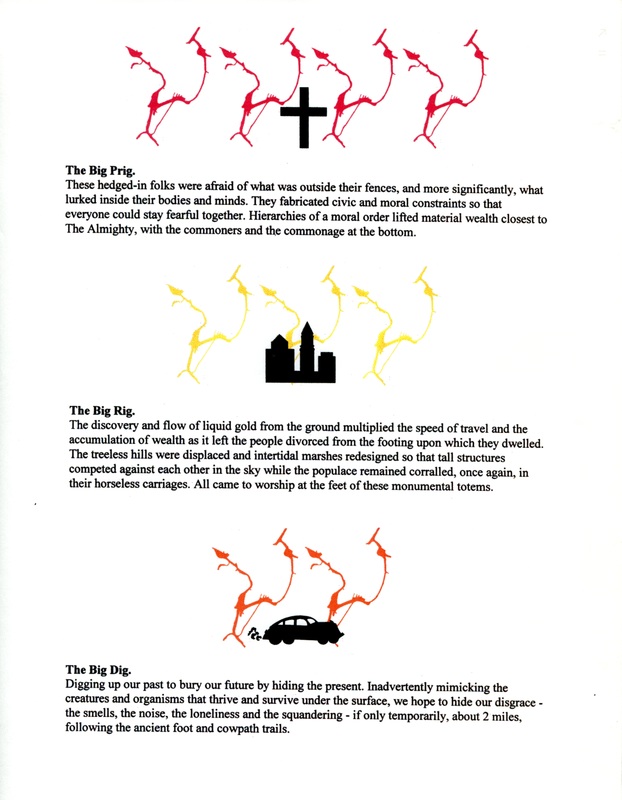THe BIG TWIG

BIG TWIG TUNNEL TAPES, released by Jay Critchley, feature original field recordings from the $20 billion Boston highway project The Big Dig, recorded before tunnels opened to traffic.
At its completion, Boston’s Big Dig—the Central Artery/Tunnel Project—was the most expensive public works project in the United States, its cost totaling $22 billion. But long before these numbers were finalized, Jay Critchley did the math.
He determined that 12.5 million carbon-filtering trees would be required to mitigate the mega-highway’s annual 350,000 metric tons of pollution generated from 250,000 automobiles per day. He used these numbers to craft a public proposal of his own, the Big Twig. Inspired by the Big Dig’s branch-like footprint, Critchley proposed a new, holistic way of doing business: make pollution reduction and the environment a priority of public works projects.
The Big Twig proposed the acquisition of land parcels throughout the impacted region; using original estimates, a minimum of 250,000 acres would be required to mitigate pollution levels. At $10,000 per acre, it would cost $25 million, .002 percent of the cost of the Big Dig. Big Twig received special citation awards from The Cooper-Hewitt-Smithsonian Museum and the University of Oregon.
Of course, the Big Twig project involved going underground. Critchley and a range of musicians and other artists descended 125 feet into the soon-to-be opened tunnels of the Big Dig, and there they recorded ambient sound, music, and field recordings, all of which were produced by Timothy O’Keefe and other musicians into “The Big Twig Tunnel Tapes—Boston’s Big Dig Sings!”
The opera, the ambient music, the viola solos, the throat singing, the rap music—“The Big Twig Tunnel Tapes” is a moving sample of the collective, human cry that’s rooted deep inside the earth.
At its completion, Boston’s Big Dig—the Central Artery/Tunnel Project—was the most expensive public works project in the United States, its cost totaling $22 billion. But long before these numbers were finalized, Jay Critchley did the math.
He determined that 12.5 million carbon-filtering trees would be required to mitigate the mega-highway’s annual 350,000 metric tons of pollution generated from 250,000 automobiles per day. He used these numbers to craft a public proposal of his own, the Big Twig. Inspired by the Big Dig’s branch-like footprint, Critchley proposed a new, holistic way of doing business: make pollution reduction and the environment a priority of public works projects.
The Big Twig proposed the acquisition of land parcels throughout the impacted region; using original estimates, a minimum of 250,000 acres would be required to mitigate pollution levels. At $10,000 per acre, it would cost $25 million, .002 percent of the cost of the Big Dig. Big Twig received special citation awards from The Cooper-Hewitt-Smithsonian Museum and the University of Oregon.
Of course, the Big Twig project involved going underground. Critchley and a range of musicians and other artists descended 125 feet into the soon-to-be opened tunnels of the Big Dig, and there they recorded ambient sound, music, and field recordings, all of which were produced by Timothy O’Keefe and other musicians into “The Big Twig Tunnel Tapes—Boston’s Big Dig Sings!”
The opera, the ambient music, the viola solos, the throat singing, the rap music—“The Big Twig Tunnel Tapes” is a moving sample of the collective, human cry that’s rooted deep inside the earth.
I’ve got tunnel vision, let the bombing go on!
We’ve got to protect ourselves from all those morons,
So I can charge and buy the goods to set myself free,
Sugar in my coffee and my SUV.
- Excerpt of "Tunnel Vision"









